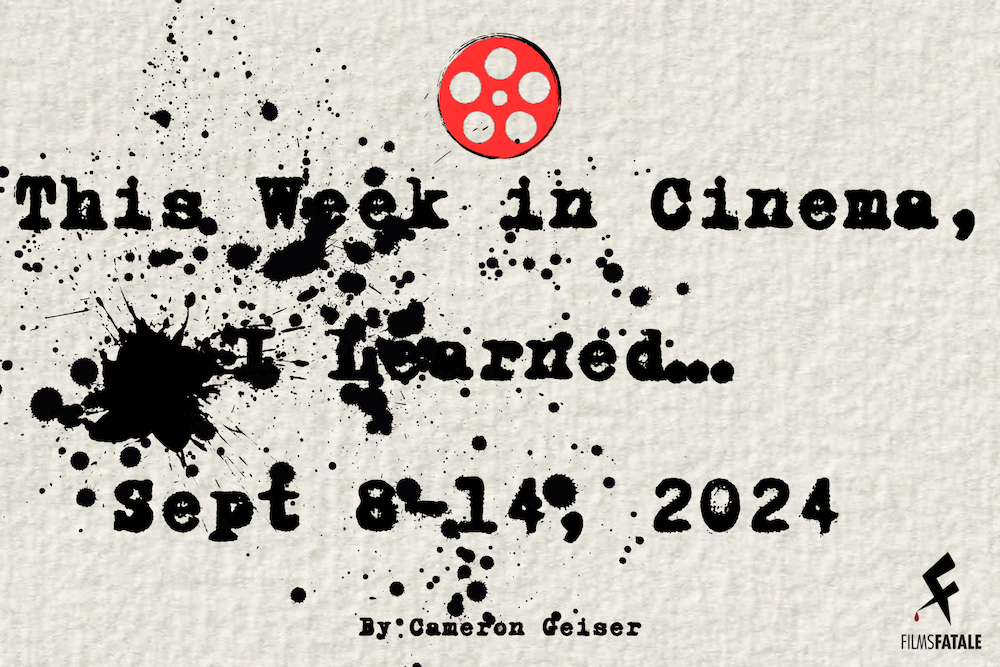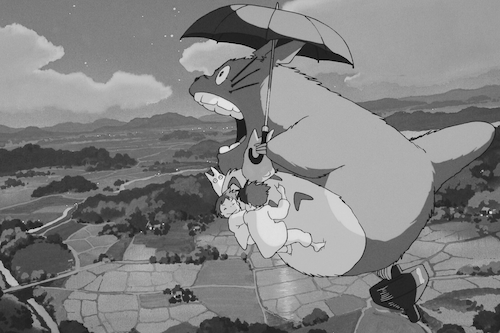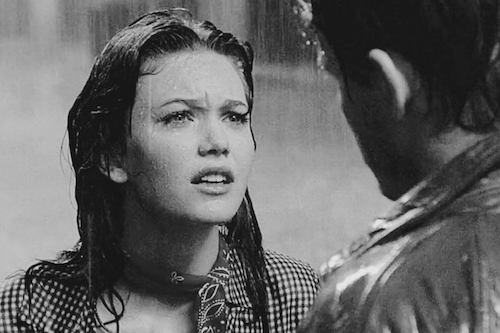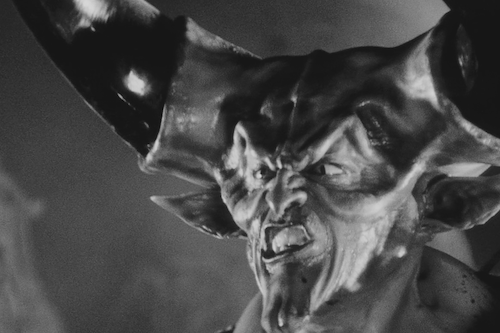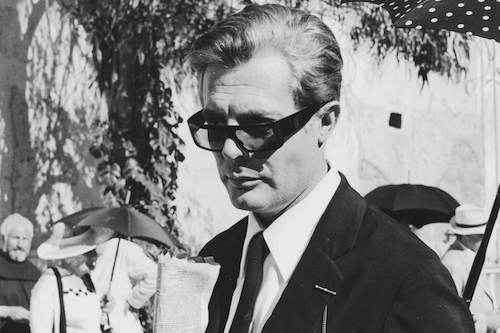This Week in Cinema, I Learned…Sept 8-14 2024
Written by Cameron Geiser
Welcome to This Week in Cinema, a yearlong film criticism project wherein I will be watching a new film that I haven't seen every single day.
As with the majority of September’s film choices, this week was a bizarre one. During the selection process of this month’s films I was often caught in the conundrum of debating whether or not a film actually fit the billing of being steeped in surrealism or the fantastic. Or whether multiple readings of the Fantasy trope would mean too many stories of swords, shields, and mighty dragons sullying the well of potential. Animation marks a return to the project this week, as in the previous week I included the Demon Slayer anime movie and here I’ve added the absolute vibe that is My Neighbor Totoro to balance the scales. Wild Zero, Rubber, and Streets of Fire all have that wild-eyed look of determination, youthful rebellion, and insane possibilities. In these films, anything can happen, and I do mean anything.
Teenage 1950s-style Greaser Willem Dafoe dive bombing a live concert and kidnapping the lead singer while chaos erupts in the auditorium? Check. Sentient car tires getting violent and telekinetic out in the desert as a party of onlookers are killed off one by one? Check. A Japanese Punk band that teams up with a superfan to take on an alien invasion and subsequent zombie apocalypse in order to save the world and keep on rocking? And check. The remaining films, Legend, Downsizing, and 8½ all cover surrealist ideas and imagery, but Legend itself essentially is a variant of what a live action Legend of Zelda Movie could have been like in 1985. Downsizing takes a sci-fi concept and runs with it, maybe a bit too far at times, but it works due to the characters around the central figure who unfortunately lacks the luster, so to say. 8½ plays with reality itself with a fictional stand-in for the Italian Auteur Fellini who has a bit of a time committing to a film he’s supposed to be making, but he’s got his head in the clouds and everyone else has to drag him back down to Earth.
September 8th
Rubber (2010)
3/5
Rubber opens with a monologue about the film we are all about to watch from a seemingly random police officer, in which he goes into detail about style and expectations as related to the movie-going experience. Granted, this is all within the clever framework the filmmakers have structured with Rubber. In this film, set somewhere in the southwest I assume, a cop and an… let’s call him an intern, organize a group of bystanders by handing out binoculars and directing them to look in the direction of “The Action”. That “Action” is just a car tire becoming conscious and rolling about as it discovers the world around itself. The tire also is a psychotic being and can explode human heads a la Scanners at will. So, that’s fun. Intermittently we get updates on the group of people, as they whine, complain, argue with each other, and generally give terrible commentary.
This is all a brilliant way to craft a satirical send-up of modern movie audiences that critiques audiences just as cynically as Rubber riffs on itself, modern movies, and expectations generally speaking. Since it’s essentially just a self aware slasher flick, Rubber’s got enough creative juices to earn itself a decent score, plus its shorter runtime accounts for this as well. This clever little film is definitely worth a watch but what really solidified it as a recommendation for me was when the Tire was left to its own devices in a motel room, what did it choose to do with its time? Watch NASCAR of course, what else?
September 9th
My Neighbor Totoro (1988)
4/5
As I’ve been working my way through Hayao Miyazaki’s animated films I had often heard about My Neighbor Totoro, but never actually gotten around to watching it, until now. It’s not exactly near my favorite films from Miyazaki but Totoro is such a relaxed vibe that I completely understand the larger than life love that this one has gotten over the years. Thematically rivaling The Boy and The Heron in several narrative beats and styles, Totoro begins with a small family moving out to the rural countryside, a father and two young daughters. Their mother is ill and must stay at a more urban Hospital while the family settles in the new home, thereby allowing time and freedom to the two young girls to explore their new territory and you know, be kids. The film is a fairly simple, but pleasing, one. Through the kids interacting with Totoro himself, and other magical creatures of the nearby forest, the audience becomes immersed in this blend between human life and the spirits that bleed through realities while coexisting with humanity.
The animation is, as always, gorgeous and nurturing. Harmony with nature and a respect for the unknown are two notions that My Neighbor Totoro leans into heavily throughout the runtime. However I was surprised to see the film dive into a darker territory for a brief moment when the girls have to consider that their mother may be dying. It doesn’t get too sad though for the most part as it’s more about presenting the idea of death to children and the fact that it is indeed a part of life after all. Their confrontation of the very idea of death itself was a fascinating choice, and I applaud it. Other than that My Neighbor Totoro doesn’t concern itself with anything too pressing. The vibe is, after all, Catbus, and Catbus is here to help!
September 10th
Wild Zero (1999)
3/5
Never have I seen a film that more resembles a live-action anime in style, nature, and complete insanity. Part concert film, part sci-fi alien invasion, part zombie apocalypse and also a new age love story? (Hey, for 1999 having a sex positive and accepting viewpoint of any transgendered people is moving in the right direction if you ask me, and also wildly ahead of its time) Wild Zero was recommended to me by a teenager obsessed with obscure music, oddball films, and comic-books so to be fair, this was exactly the type of movie that I expected, and even those expectations were shattered by how ridiculous this movie is. It’s incredibly simple in story terms, but highly unorthodox everywhere else. Ace (Masashi Endō) is a superfan of the band Guitar Wolf (a real Japanese band that portrays themselves in concert scenes and as characters in the film) and when he sneaks backstage he encounters the band as they are confronting their lousy thieving manager, The Captain (Makoto Inamiya), at gunpoint- who dares to declare that Rock and Roll is obsolete. This sends the eavesdropping Ace into overdrive as he kicks down the door proclaiming that Rock and Roll can never die, which allows Guitar Wolf to shoot their manager in the hand and take off into the night.
The vocalist admires Ace’s tenacity and gives him a whistle proclaiming Ace a blood brother to Guitar Wolf and to blow the whistle if he finds himself in danger. After this Ace inadvertently stops a robbery at a gas station and shyly admires Tobio (Kwancharu Shitichai) the attendant of the gas station before departing. Once he finds some of the thieves zombified down the road he returns to save Tobio from a zombie horde, who tells Ace they are transgendered after they share a kiss. While Ace has an adverse reaction initially, he then has a vision of Guitar Wolf who tells him that "love has no borders, nationalities, or genders". Once the zombies close in Guitar Wolf makes a triumphant return after being called by Ace’s whistle and some crazy action scenes play out and ultimately Ace decides to stay with Tobio by the end of the film, though he’s had his fair share of Guitar Wolf concerts for the time being. Wild Zero is very much a Midnight Movie, and it should be approached that way. If you come with the right expectations, you’ll likely have some fun with this very silly genre movie.
September 11th
Streets of Fire (1985)
2.5/5
Streets of Fire was a film I’ve been wanting to catch for a while now. Directed by Walter Hill, starring Willem Dafoe as the antagonist with Rick Moranis and Diane Lane in supporting roles, who cares if the lead is a mostly unknown name? Oh…. it turns out, I do care about that casting. More on that in a minute though. The film is billed as a Rock and Roll Fable, with a 1950s style production in terms of vehicles, costumes, set design, but the music, attitude of the characters, and cynicism all trend right out of the 1980s. This is a strangely middling film. The opening scene where Diane Lane’s Ellen Aim, vocalist of a sold out band, is performing onstage before being tackled and kidnapped by Willem Dafoe is visually arresting with stark lighting choices, bold shadow work, and dramatic composition of the characters in frame. It’s a shame that the rest of the film until the final ten minutes are shot flat, with soap opera style lighting washing out the drab browns and grays of this urban world, with no style whatsoever.
The whole story follows the kidnapping of Ellen Aim,which begins with a bystander who witnessed the kidnapping, Reva (Deborah Van Valkenburgh), sending for her brother, Tom (Michael Paré), to come home and help find Ellen. Michael Paré and Rick Moranis are where the biggest problems of the movie collide. They are both terrifically miscast. No offense to Rick Moranis, he’s usually great but as a tough guy manager and mean spirited boyfriend of the kidnapped Ellen Aim- I don’t buy it. Not for a second. I don’t believe you sir. Michael Paré on the other hand, I know why he was cast, he sounds like a movie star with that voice, and he has the looks of an almost Hollywood hunk but he plays the character like a dead fish.
I don’t mean to be rude, but he never believably performed any part of the character of Tom Cody in my opinion. Streets of Fire opens big, but nothing the film does after that can live up to that first sequence. Oh, and the final fight between Willem Dafoe and Michael Paré is just bad. The choreography of that fight is muddled, cumbersome, shot like the weight and movement should be heavier and more impactful, but it just falls flat. There’s some good stuff here and there, but the film never fully gets into third gear, just meandering along with half measures. You could do worse than Streets of Fire, but it’s not exactly great either.
September 12th
Legend (1985)
3.5/5
Now this one was a complete surprise! I had no idea that Ridley Scott directed this film, but also that Tim Curry played the literal Devil as the antagonist with 1980’s Tom Cruise playing essentially Link from The Legend of Zelda- except he has dialogue. In fact the whole damn film is essentially just live action Legend of Zelda without fully committing to the idea. The production design, sets, costumes, lighting, and score by Tangerine Dream all combine to give Legend an incredibly unique visual aesthetic for that era. The way Scott utilizes wind in the opening forest scenes make the forest feel alive and magical in nature, everything looks and feels appropriate for the fantasy genre. The plot is admittedly thin, but this one is a simple fairy tale that aims to entertain and maybe scare a few kids with several scenes- or just by laying eyes on Darkness himself as portrayed by Tim Curry. Darkness, as his name would imply, has one simple goal; to rid the world of light. To accomplish this he must kill the remaining unicorns, and only Jack, stands in his way. It may not have the most award winning dialogue or lyrical monologues but it is incredibly well realized through the production as noted, but also in the tight and controlled blocking and framing. Easily a recommendation from me, it’s a perfect rainy day film.
September 13th
Downsizing (2017)
3/5
Since last year’s The Holdovers from Alexander Payne was my favorite film of 2023, I’ve been working my way through his filmography when possible. Downsizing is a sci-fi concept film with a great cast and acceptable scripting, but it never felt like it quite deserved the hate I remember it receiving when it was originally released. The idea was to combat overpopulation and global warming by shrinking a sizable portion of the world’s human population to a tenth of their size. Why would someone do this? Well not only would the applicants get to feel self important for helping “do their part” but it doesn’t hurt that when you go small, your money gets big. By catering to the newly shrinked society members over the years the trade off is that the company that performs the shrinking helps get your finances in order too.
The process takes middle class incomes and turns that into millionaire status, more or less so when sliding that scale to any various net worth. So that’s all fine and dandy but is the story actually any good? Actually yes, there’s some good story here, it’s just unfortunately attached to a frustratingly inert and dumb main character portrayed by Matt Damon. This isn’t his fault to be fair, the character as written is a dolt, a tool, passionless, and full of mistakes. The first mistake was not making sure his wife actually wanted to get shrunken in the first place. Turns out she didn’t and abandoned him before his transformation was over and left him wealthy and tiny living in a super community of fellow shrunken people.
The other two major characters, that are equal parts funnier and more interesting than Matt Damon's character are, his European coded party boy neighbor, Dusan, played by Christoph Waltz, and the Vietnamese Protest Icon, Ngoc Lan Tran (Hong Chau), who was shrunken against her will and now lives as a cleaning lady in the downsized community. There’s some good story development with every other character, it’s just a bit disappointing that the main person we follow is so plainly uninteresting. Somewhat recommended, if only to see Christoph Waltz playfully chide Matt Damon into a red-faced schmuck.
September 14th
8½ (1963)
5/5
This is the good stuff, ladies and gentlemen. I’ve seen Federico Fellini films before this, namely I Vitelloni, but I need to do a deep dive into his work at some point. Anyhow, I’ve always heard that this film is constantly being recommended by some of the best filmmakers of all time. So, I had to see it. I’d tried to give it a watch years ago but for whatever reason I couldn’t get past the first few opening scenes and never came back. What shame! For this is one of those films that every person that wants to be a filmmaker should see at some point in their lives. The core notion of the film is what the experience of being a filmmaker, a true director, is really about. Namely having your head pulled out of the clouds with everyone around you clamoring for results, creativity, demands, scripting, character notes, personal favors, order and even chaos. In fact this notion of a film production being a circus of oddities fits filmmaking as a whole rather snugly.
There’s a lot Fellini does with 8½ that is outright masterful. He’ll often use dream logic when retracing our director’s, Guido Anselmi (Marcello Mastroianni), memories and influences, passions and proclivities ect. The “Asa Nisi Masa” scene plays with memory just as several scenes before and after this play with the notion of magical realism used to depict how it feels to be the person at the core of getting a film from production and into theaters. I also really liked all of the engagements with the critic, or screenwriter, (I wasn’t sure if the character was simply an author whose work was being adapted, or if he wrote the screenplay itself) and Guido. The screenwriter is constantly talking down Guido’s creative choices and essentially encapsulating that critical voice, externally and internally, that most artists know and loathe. The screenwriter even congratulates Guido for having the integrity to quit the film at the end, but the final sequence in the film flies in the face of that notion by having Fellini frame the cast and crew of the fake film as how Guido Anselmi would direct them- by having them dance in the face of criticism. Now that’s an ending!
The only scene that really didn’t jive with me was the Harem sequence. It’s not explicitly wrong or disgusting at face value, but having a horde of women cater to a man’s every need or care, or while in servitude sexually, for entertainment purposes, or simply bathing him- it felt a bit gross personally. Maybe that’s me bringing a modern or American judgment to the picture, but hey, characters are allowed to engage in imperfect thought (obviously). It’s a fascinating film, and one that makes me want to seek out more of Fellini’s films.
Cameron Geiser is an avid consumer of films and books about filmmakers. He'll watch any film at least once, and can usually be spotted at the annual Traverse City Film Festival in Northern Michigan. He also writes about film over at www.spacecortezwrites.com.

